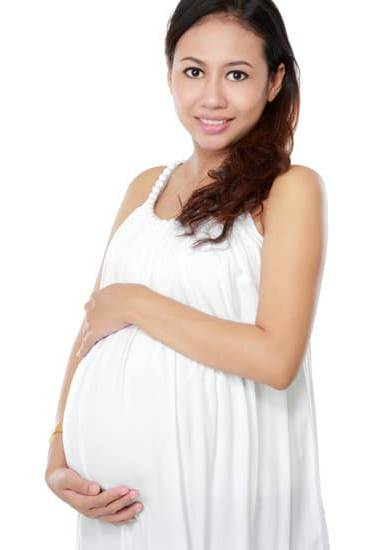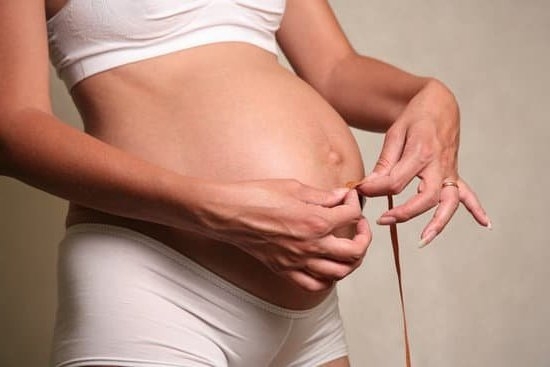Are you experiencing unusual symptoms and wondering if you could be pregnant? It’s possible to start noticing some very early signs of pregnancy just 1 week after conception. Understanding these signs can help you determine whether it’s time to take a pregnancy test.
The menstrual cycle and ovulation play a crucial role in determining when a woman can get pregnant. Around the time of ovulation, which is typically midway through the cycle, the chances of conceiving are highest. Once fertilization occurs, the body may begin to exhibit certain subtle changes that can signal the start of pregnancy.
One possible early sign of pregnancy at 1 week is implantation symptoms. Implantation occurs when the fertilized egg attaches to the uterine lining, and this process can cause light spotting or cramping for some women. This usually occurs around 6-12 days after conception.
Additionally, changes in basal body temperature may also indicate pregnancy, as a slight rise in temperature can occur after implantation. Keep reading to learn more about these and other very early signs that may suggest you’re expecting.
Understanding the Menstrual Cycle and Ovulation
Menstrual Cycle Overview
The menstrual cycle is a regular process that occurs in the female reproductive system. It involves hormone fluctuations, which control the release of an egg from the ovaries and the preparation of the uterus for pregnancy. On average, a menstrual cycle lasts about 28 days, although it can range from 21 to 35 days in adult women.
Ovulation and Fertility
Ovulation is the process where an egg is released from one of the ovaries. This typically occurs around day 14 of a 28-day menstrual cycle. During ovulation, the egg travels down to the fallopian tube in hopes of meeting sperm for fertilization. Understanding your menstrual cycle and when you ovulate can be helpful if you are trying to conceive or trying to avoid pregnancy.
Signs of Ovulation
Some women may experience mild pain or discomfort on one side of their lower abdomen during ovulation. This is known as mittelschmerz, which can be a sign that ovulation is occurring. Other signs include changes in cervical mucus and a slightly elevated basal body temperature (BBT).
These signs are key indicators for tracking ovulation and fertility. Additionally, understanding these signs can also help identify very early signs of pregnancy 1 week after ovulation has occurred. If conception takes place, these subtle symptoms can be some of the first indicators that a woman may be pregnant.
Possible Implantation Symptoms
During the very early signs of pregnancy 1 week, some women may experience possible implantation symptoms. Implantation occurs when a fertilized egg attaches itself to the uterine wall, typically about 6-10 days after conception. This process can cause some women to notice light spotting, also known as implantation bleeding. It is usually lighter in color and flow than a regular menstrual period and may be accompanied by mild cramping.
In addition to implantation bleeding, other possible implantation symptoms can include a heightened sense of smell, mild pelvic or lower abdominal discomfort, and a small increase in basal body temperature. However, it is important to note that not all women will experience these symptoms during the early stages of pregnancy. Each woman’s body is unique and may respond differently to the process of implantation.
For those trying to conceive or who suspect they may be pregnant, paying attention to these very early signs of pregnancy 1 week can help provide insight into their fertility and reproductive health. However, it is important to confirm pregnancy through a medical test for accurate results.
| Implantation Symptoms | Description |
|---|---|
| Implantation Bleeding | Light spotting that occurs as the fertilized egg attaches to the uterine wall. |
| Heightened Sense of Smell | An increased sensitivity to odors, which can be an early indicator of pregnancy. |
| Mild Pelvic Discomfort | Some women may experience mild cramping or discomfort in the pelvic region during implantation. |
Changes in Basal Body Temperature
Temperature Tracking
One of the very early signs of pregnancy 1 week is changes in basal body temperature. Basal body temperature (BBT) refers to your body’s temperature at rest, and it can be an important indicator of ovulation and potential pregnancy. Many women use BBT tracking as part of their efforts to conceive, but it can also be a sign of pregnancy when temperatures remain elevated for an extended period.
Temperature Patterns
During the menstrual cycle, a woman’s BBT tends to fluctuate based on hormone levels. After ovulation, the hormone progesterone causes a slight increase in BBT which typically stays elevated until menstruation occurs. However, if pregnancy occurs, the BBT will stay elevated over the course of several weeks. It is recommended that women track their BBT every morning at the same time before getting out of bed for accurate results.
Confirming Pregnancy
While changes in basal body temperature can be one of the very early signs of pregnancy 1 week, it is not always a definitive confirmation. Other factors such as illness or lack of sleep can also affect BBT readings. For a more reliable confirmation, women should also consider taking a home pregnancy test or visiting a healthcare provider for further testing if they suspect they may be pregnant.
Sensitive or Swollen Breasts
During the very early signs of pregnancy at one week, some women may experience changes in their breasts. This can include sensitivity or swelling in the breast tissue, which is often one of the first noticeable indicators of pregnancy. Around this time, the body begins to produce higher levels of estrogen and progesterone, leading to changes in the breast tissue that can cause discomfort or tenderness.
In some cases, the areolas may also become darker and larger, a result of hormonal changes as the body prepares for pregnancy. These changes occur due to increased blood flow to the breasts as well as the growth of milk ducts in preparation for breastfeeding.
It’s important to note that not all women will experience these symptoms and that they can vary greatly from person to person. However, sensitive or swollen breasts during this very early stage can be a potential sign of pregnancy and may prompt someone to take a home pregnancy test.
For many women experiencing these symptoms at one week into a potential pregnancy, it’s important to monitor any additional signs such as missed periods or implantation bleeding before confirming their suspicions. As with all early symptoms of pregnancy, consult with a healthcare provider if you have concerns or questions about your experience.
Increased Urination Frequency
One of the very early signs of pregnancy 1 week that women may experience is increased urination frequency. This often goes unnoticed by many women, especially if they have a habit of drinking a lot of fluids throughout the day. However, if you find yourself making more trips to the bathroom than usual and it’s not because you are consuming more fluids than normal, it could be a sign that you are pregnant.
The increased urination frequency in very early pregnancy is due to hormonal changes in the body, particularly an increase in the hormone human chorionic gonadotropin (hCG). This hormone can cause an increased blood flow to the pelvic area, which in turn can lead to more frequent urination. While it’s one of the common signs of pregnancy, it’s important to note that not all expectant mothers will experience increased urination frequency in their first week of pregnancy.
In addition to the changes in hormones and blood flow, the growing uterus can also put pressure on your bladder, prompting you to urinate even more frequently. It’s important for women who suspect they may be pregnant and are experiencing this symptom along with other possible signs of pregnancy to take a home pregnancy test or consult with their healthcare provider for confirmation.
| Increased Urination Frequency | Very Early Signs of Pregnancy 1 Week |
|---|---|
| The hormonal changes cause increased blood flow to the pelvic area | Sensitive or Swollen Breasts |
| Growing uterus putting pressure on bladder | Feeling Tired or Fatigued |
Feeling Tired or Fatigued
One of the very early signs of pregnancy 1 week is feeling unusually tired or fatigued. Many women may start to feel a sudden and extreme exhaustion even if they have had a full night’s sleep. This can be attributed to the hormonal changes happening in their body as it starts to prepare for the growth and development of the fetus.
During the first week of pregnancy, the body starts producing more progesterone, which can make women feel more sleepy than usual. Additionally, the increased level of progesterone can also lower blood sugar levels and blood pressure, leading to feelings of fatigue.
Here are some other symptoms related to feeling tired or fatigued during very early signs of pregnancy 1 week:
- Difficulty concentrating
- Feeling weak or lightheaded
- Needing to take naps during the day
It’s important to remember that everyone’s experience with pregnancy symptoms is unique, so not all women will necessarily experience these symptoms at such an early stage in their pregnancy. If you suspect you may be pregnant and are experiencing extreme fatigue, it is recommended to take a home pregnancy test and consult with your healthcare provider for further guidance.
Changes in Appetite and Food Cravings
During the very early stages of pregnancy, some women may experience changes in appetite and food cravings as a result of hormonal fluctuations. These changes can occur as early as 1 week after conception and are often one of the first signs of pregnancy. It is important to note that these symptoms can vary from person to person, and not all women will experience them in the same way.
Many women report experiencing intense food cravings or aversions very early in their pregnancies. This can range from craving certain foods that they typically do not enjoy, to feeling repulsed by foods they used to love.
Some women may also experience a heightened sense of smell, which can impact their overall appetite and create aversions to certain foods. These changes are largely due to the increase in hormone levels, specifically estrogen and progesterone, which can affect the way our bodies process and perceive food.
In addition to food cravings and aversions, some women may also notice an increased or decreased appetite during the early stages of pregnancy. While some may feel constantly hungry and have a difficult time feeling full, others may have a decreased appetite or feel nauseous at the sight or smell of food.
These changes can be attributed to the hormonal shifts occurring in the body as it begins to support the developing fetus. If you suspect you may be pregnant due to experiencing very early signs of pregnancy 1 week after conception, it’s important to consult with a healthcare professional for confirmation and guidance on managing these symptoms.
Mood Swings and Emotional Changes
During the very early signs of pregnancy 1 week, mood swings and emotional changes are common symptoms experienced by many women. These changes can be attributed to the hormonal fluctuations happening in the body as it adjusts to the pregnancy. Here are some ways in which mood swings and emotional changes may manifest:
- Feeling more irritable or easily frustrated
- Crying or becoming emotional over seemingly small things
- Heightened anxiety or feelings of being overwhelmed
It is important to note that these emotional changes are often temporary and part of the body’s response to the influx of hormones associated with early pregnancy. However, if you experience severe or persistent mood swings that interfere with your daily life, it is recommended to consult a healthcare professional for further evaluation.
Additionally, it is crucial for partners and loved ones to provide support and understanding to women experiencing these emotional changes during early pregnancy. Creating a supportive environment can greatly benefit the overall well-being of the expectant mother during this time. Understanding that these emotions are a normal part of early pregnancy can help alleviate any added stress or concern.
Conclusion and Next Steps
In conclusion, being aware of the very early signs of pregnancy 1 week is important for women who are trying to conceive or those who are concerned about a possible pregnancy. Understanding the menstrual cycle and ovulation can help in recognizing the potential implantation symptoms, such as light spotting or cramping, which may occur around 1 week after conception.
Changes in basal body temperature, sensitive breasts, increased urination frequency, fatigue, and mood swings are also common indicators that may point towards early pregnancy.
After recognizing these signs, the next steps may include taking a home pregnancy test to confirm the pregnancy. It is also important to schedule an appointment with a healthcare provider for prenatal care if the test is positive. Additionally, making lifestyle changes such as taking prenatal vitamins, eating a balanced diet, and avoiding harmful substances like alcohol and tobacco can help ensure a healthy pregnancy.
It is crucial to remember that every woman’s experience with early pregnancy symptoms can vary and it is always best to consult with a healthcare professional for personalized advice. Paying attention to subtle changes in the body and seeking medical guidance can help ensure a healthy start to pregnancy.
Frequently Asked Questions
How Can I Tell if I’m Pregnant After 1 Week?
After one week, it may be too early to experience pregnancy symptoms or take a reliable pregnancy test. However, some women may notice signs like breast tenderness or fatigue. It’s best to wait a few more weeks before testing.
When Do You Start Feeling Pregnant?
Most women start feeling pregnant around 4-6 weeks gestation. This is when hormonal changes can bring on symptoms like nausea, breast tenderness, and fatigue. Every woman’s experience is unique, but these early signs are common.
How Soon Can You Tell if You Are Pregnant?
Early pregnancy tests can detect the hormone hCG as early as 7-10 days after conception, which is usually before your missed period. However, for the most accurate results, it’s best to wait until you’ve actually missed your period before taking a home pregnancy test.

Welcome to my fertility blog. This is a space where I will be sharing my experiences as I navigate through the world of fertility treatments, as well as provide information and resources about fertility and pregnancy.





